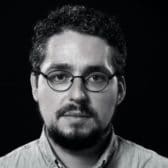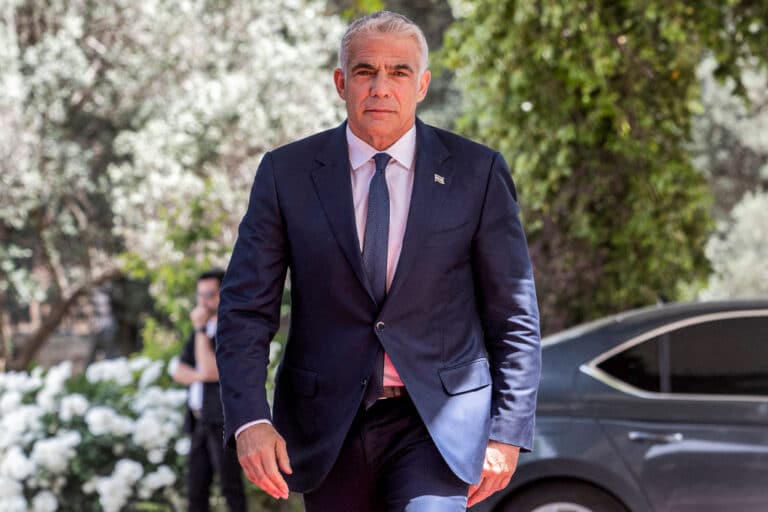
Israel is heading to the polls for a 5th time in three years after the country’s government collapsed in record time.
The joint coalition between Prime Minister Naftali Bennett and Minister of Foreign Affairs Yair Lapid fell apart this week after only one year in office. Their razor thin majority coalition suffered from multiple defections by members of parliament and finally the situation got to the point where they no longer held a majority in the Knesset (Israeli Parliament).

Historic in nature, the Bennett-Lapid government was the first to include an Islamist political party, and it was the first government in 12 years not led by Benjamin Netanyahu. Elections are slated to happen in October and in the meantime Bennett will step down as prime minister with Yair Lapid becoming the interim leader of Israel under a deal he made with Bennett when the two formed their coalition government.
Who is Yair Lapid?
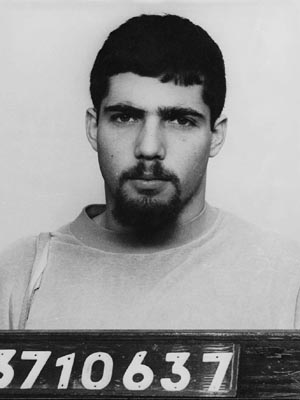
- 58 years old, born in Tel Aviv and grew up in Israel and London, is considered to be a centrist
- His father is Hungarian Jewish from Serbia and his mother was born in Tel Aviv during the British Mandate years, his great-grandmother was murdered at Auschwitz
- His father was a journalist and a famous liberal politician serving as a former justice minister, his mother is a novelist and playwright
- Dropped out of high school due to a learning disability and later acquired a PhD in hermeneutics.
- Suffered an asthma attack while serving in the IDF and was transferred to the military’s newspaper
- Had a brief career as an amateur boxer
- Married to journalist Lihi Lapid and has two children with her, he has another son from his first marriage.
- Attends the Daniels Centers for Progressive Judaism, a Reform synagogue in Tel Aviv
Yair Lapid: journalist turned politician

Lapid is very well known in Israel, becoming one of the country’s top journalists but little is known of him outside of the Jewish state.
In his 20s Lapid worked for various newspapers writing columns and he transitioned over to television, eventually hosting several popular talk shows. He’s also acted in a few movies and has written several books, including two for children. In January, 2012, Lapid announced that he was leaving journalism for politics.
He served as finance minister in 2013 and was fired a year later by Netanyahu. After that he sat in the opposition until the 2021 elections when he was given the second mandate to form a new government after the incumbent Netanyahu failed to do so with the first mandate. Under a power sharing deal with Bennett, Lapid was able to form a coalition government.
Israel-Palestinian conflict positions
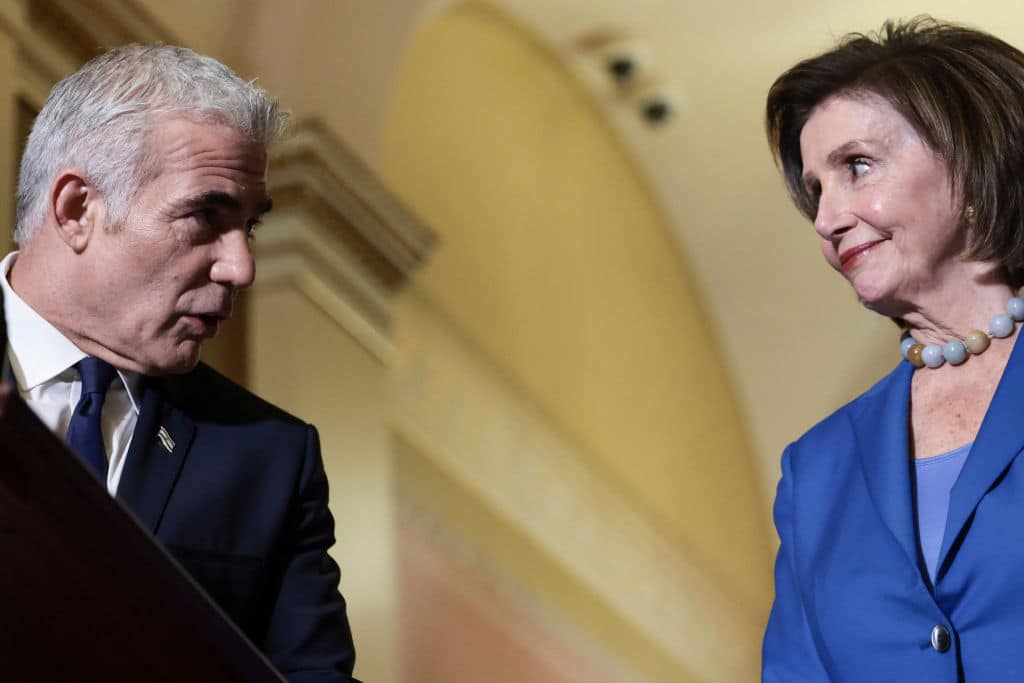
Lapid has said that he is in favor of resuming negotiations between Israel and the Palestinian Authority. His party’s 2013 platform called for an outline of “two states for two peoples,” maintaining Israeli settlements in the West Bank and Israeli control of Jerusalem.
In his own words:
“Israelis want peace and security, and Palestinians want peace and justice – these are two very different things, and this is the real gap we have to close.”
“Israel’s strategic goal needs to be a regional agreement that will lead to full and normal relations with the Arab world and the creation of a demilitarized independent Palestinian state alongside Israel. That’s where Israel needs to head. Separation from the Palestinians with strict security measures will save the Jewish character of the state.”
“The Palestinians must be brought to an understanding that Jerusalem will always remain under Israeli sovereignty and that there is no point for them in opening negotiations about Jerusalem.”
“Why doesn’t anyone remember that the Palestinians already had four real opportunities to establish their state, yet each time they preferred to revert to terrorism?”
Position on religious matters:

Lapid attends services at a Reform synagogue in Tel Aviv and is in favor of limiting the Chief Rabbinate’s control. Lapid is in favor of increased public transportation on Shabbat and making marriage a civil matter instead of religious.
In his own words:
“I’m not telling you what to do on the Sabbath, and you won’t tell me.”
“Judaism shouldn’t be the jailhouse of ideas but a liberator of ideas; not a disintegrator of people but what brings people together.”
“I think that haredi children should study the core subjects and that their parents must work, and I believe that there are many haredim who think like me and would be glad to discover that someone is fighting the radical functionaries and rabbis who embitter their lives.”
“For years, Judaism has been a sort of product put on the religious shelf, and on holidays, we would take it off the shelf and let seculars play with it for a bit. Now, Judaism is going back to being something that more closely touches everyone.”
“The rabbis and their wives may say whatever they wish in private conversations. I may not like their views, but a person is allowed to say anything in his or her own home.”
In his own words:
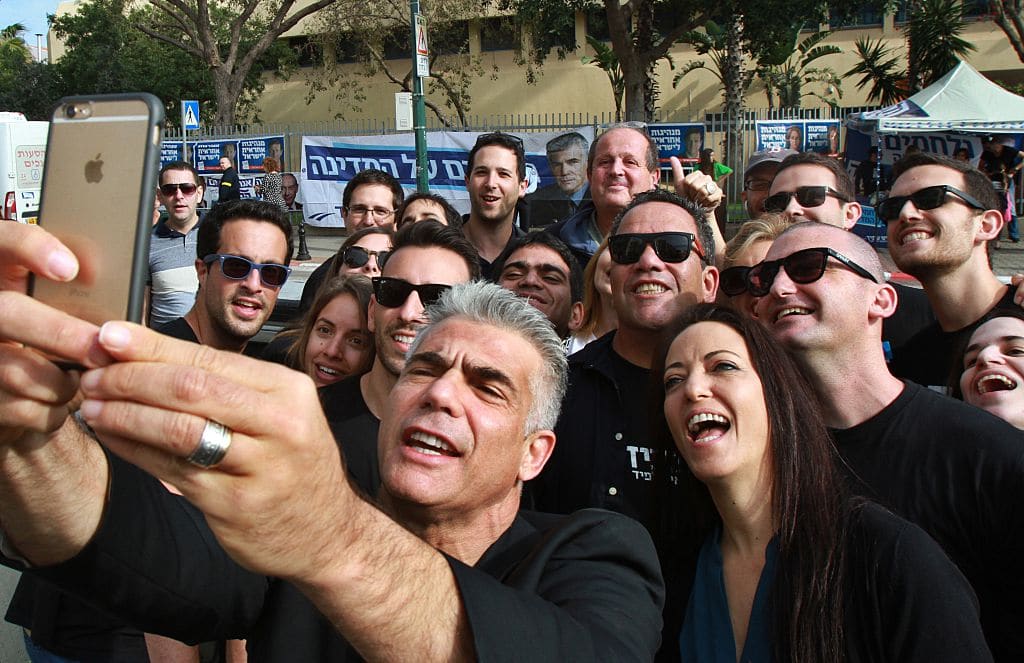
“The liberals will surely argue that every person has the right to fall in love with no regard to religion, creed or gender, but I am not that liberal.”
“I’m not particularly fond of Shoah jokes, yet there is one I cannot forget: Why was Auschwitz an optimistic place? Because all the pessimists were already in New York by then.”
“My children receive education that greatly emphasizes the fact they are part of a human group that has tradition, collective memory, and a state. I am a great believer in the need for Israel to be a Jewish state. I certainly believe my children will pass that on to their children.”
“How can Israel say that everyone is equal before the law – that you’re equal before the law – when the law defines Judaism as the cultural, national and legislative basis for the state?”
“If someone doubts our right to exist – be it on the hills of Umm al-Fahem or in Munich’s beer halls, in Gaza’s crowded streets or in the thick woods of Babi Yar – it’s their problem. Proud states do not break into wails and crawl under the carpet when they discover someone doesn’t love them.”
Originally Published Jun 24, 2022 12:02AM EDT
